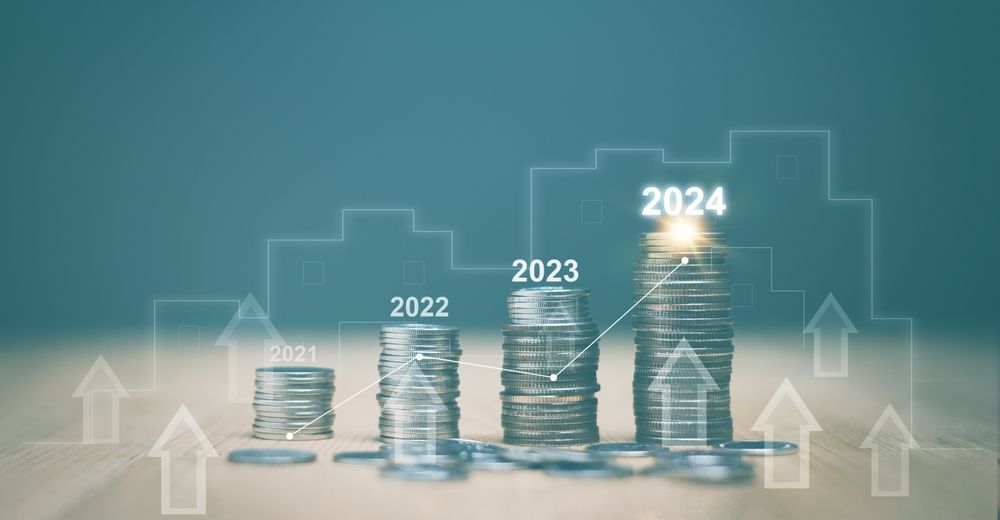
Welcome to the path of financial empowerment! Today, we delve into the life-changing world of budgeting for a debt-free future. If you’re feeling bogged down by financial obligations, you’re not alone. But fear not! With the right strategies, you can navigate the choppy waters of debt and sail smoothly into a serene sea of financial freedom. Let’s embark on this journey together and explore the tools and approaches that will help you eliminate your financial burdens and create a secure, prosperous future.
Understanding Your Debt Landscape
Before you can conquer your debt, you must first understand it. This means taking a comprehensive look at all your financial obligations – from credit card balances and personal loans to student debt and mortgages. Begin by listing each debt along with its associated interest rate, minimum payment, and total balance. This exercise isn’t just about numbers; it’s about clarity. Knowing exactly where you stand is the foundation upon which you will build your debt-free future.
Once you have a clear picture, it’s time to prioritize. High-interest debts, typically credit cards, can grow rapidly and should often be targeted first. On the other hand, low-interest, potentially tax-deductible debts like some student loans or mortgages might be lower on your list. Prioritizing by interest rate, known as the avalanche method, can save you money in the long run. However, if quick wins motivate you, consider the snowball method – paying off smaller debts first for psychological victories that keep you going.
Creating a Budget That Works for You
The cornerstone of any successful financial plan is a budget that reflects your income, expenses, and financial goals. The key to an effective budget is that it’s realistic and sustainable. Start by tracking your income and every expense for at least one month. This will give you a true sense of where your money is going and where you might be able to cut back.
Once you have this information, categorize your expenses into necessities (like housing and food) and non-essentials (like dining out and entertainment). This doesn’t mean you have to eliminate all enjoyment from your life, but it does mean making conscious choices about what’s truly important. Allocate funds to your priorities, and remember to include a category for debt repayment that’s above the minimum payments. Every extra dollar you can put towards your debt accelerates your journey to a debt-free life.
The Power of Cutting Costs
Now that you have your budget, it’s time to get creative with cutting costs. Small changes can have a big impact over time. Start with recurring monthly expenses – can you negotiate a better rate on your phone bill or insurance? Are there subscriptions or services you can live without? Even a simple switch like packing lunch instead of buying can add up to significant savings.
Don’t forget to look at your variable expenses as well. Shopping smarter by using coupons, taking advantage of sales, and buying in bulk can lower your grocery bills. Reducing energy costs by being mindful of your electricity and water usage is not only good for your wallet but the planet too. And when it comes to entertainment and leisure, look for free or low-cost activities in your community. Remember, cutting costs doesn’t mean cutting joy out of your life; it just means enjoying life more economically.
Increasing Your Income
While cutting costs is essential, sometimes it’s just not enough to dig out of debt quickly. In such cases, increasing your income can be a game-changer. Consider asking for a raise at work, or if that’s not an option, perhaps picking up extra shifts or seeking a higher-paying position. If a new job isn’t feasible, side hustles can supplement your income. Freelancing, tutoring, rideshare driving, or selling items online are just a few ways to bring in extra cash.
Remember, the goal here is to use the additional income to pay down your debt faster. Be disciplined and resist the temptation to inflate your lifestyle with your new earnings. Every extra dollar should be part of a strategic plan to reach your goal of financial freedom.
Staying Motivated and Adjusting as Needed
Paying off debt is a marathon, not a sprint. It requires persistence, discipline, and sometimes, the ability to adapt. Life is full of surprises, and your budget should be flexible enough to accommodate the unexpected. If you encounter a financial setback, don’t be discouraged. Adjust your budget, cut back a little more, or find additional ways to generate income.
Celebrating milestones along the way is also vital for staying motivated. Set up small, achievable goals and treat yourself (responsibly) when you reach them. This positive reinforcement will help reinforce your good habits and keep you on track towards your larger goal.
As you implement these strategies, keep your eyes on the prize: a life free from the shackles of debt. Imagine the peace of mind and opportunities that await you in a future where your finances are under your control. With each passing day, as you chip away at your debt, you’re building a brighter, more secure tomorrow.
Achieving a debt-free future is a journey that requires commitment and strategic planning. By understanding your debt, creating a realistic budget, cutting costs, increasing your income, and staying motivated, you can tackle your financial obligations and pave the way for a brighter, more secure future. Remember, the road to financial freedom isn’t always easy, but with perseverance and the right strategies, you can reach your destination and enjoy the rewards of a life free from debt.
